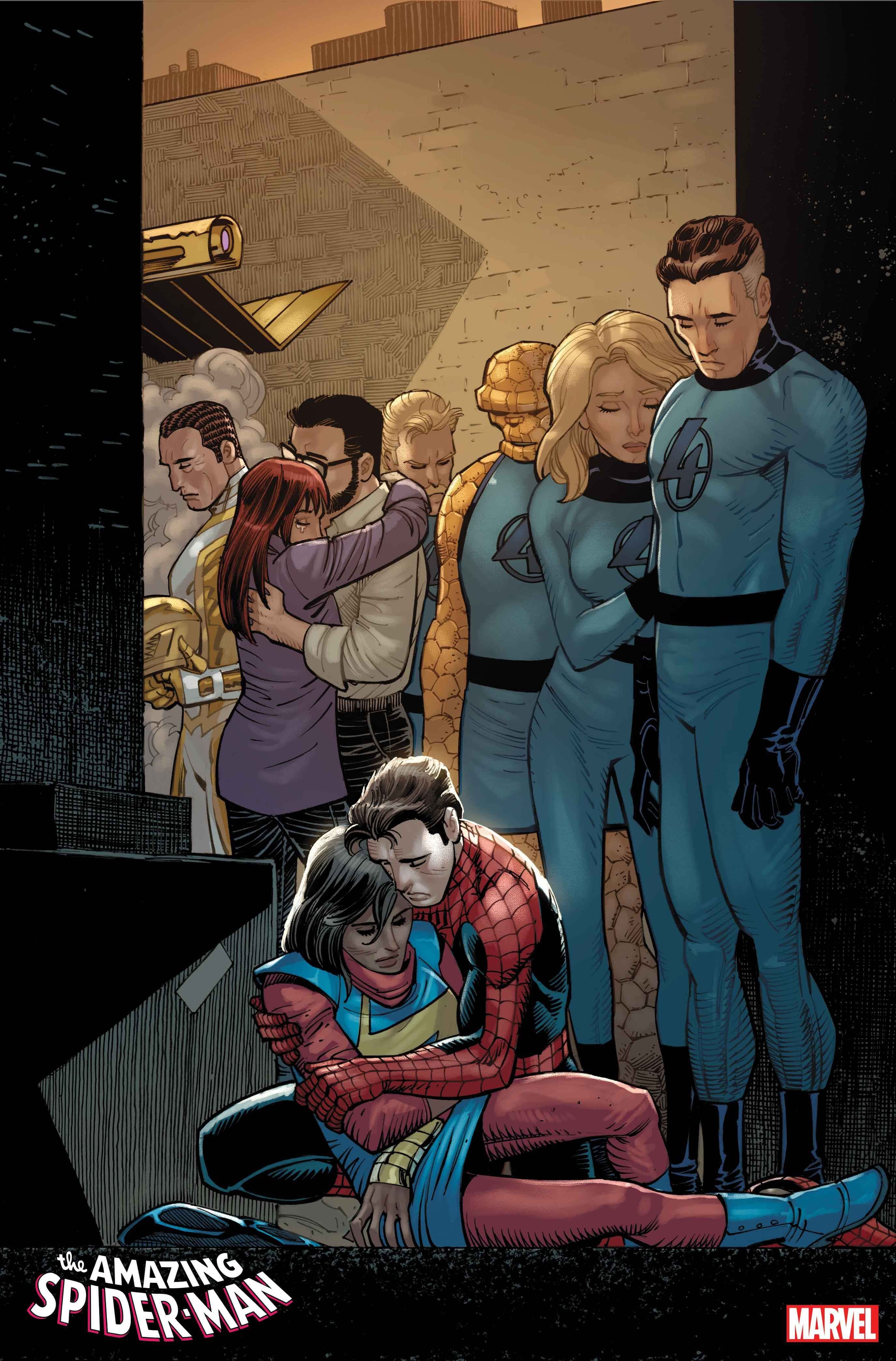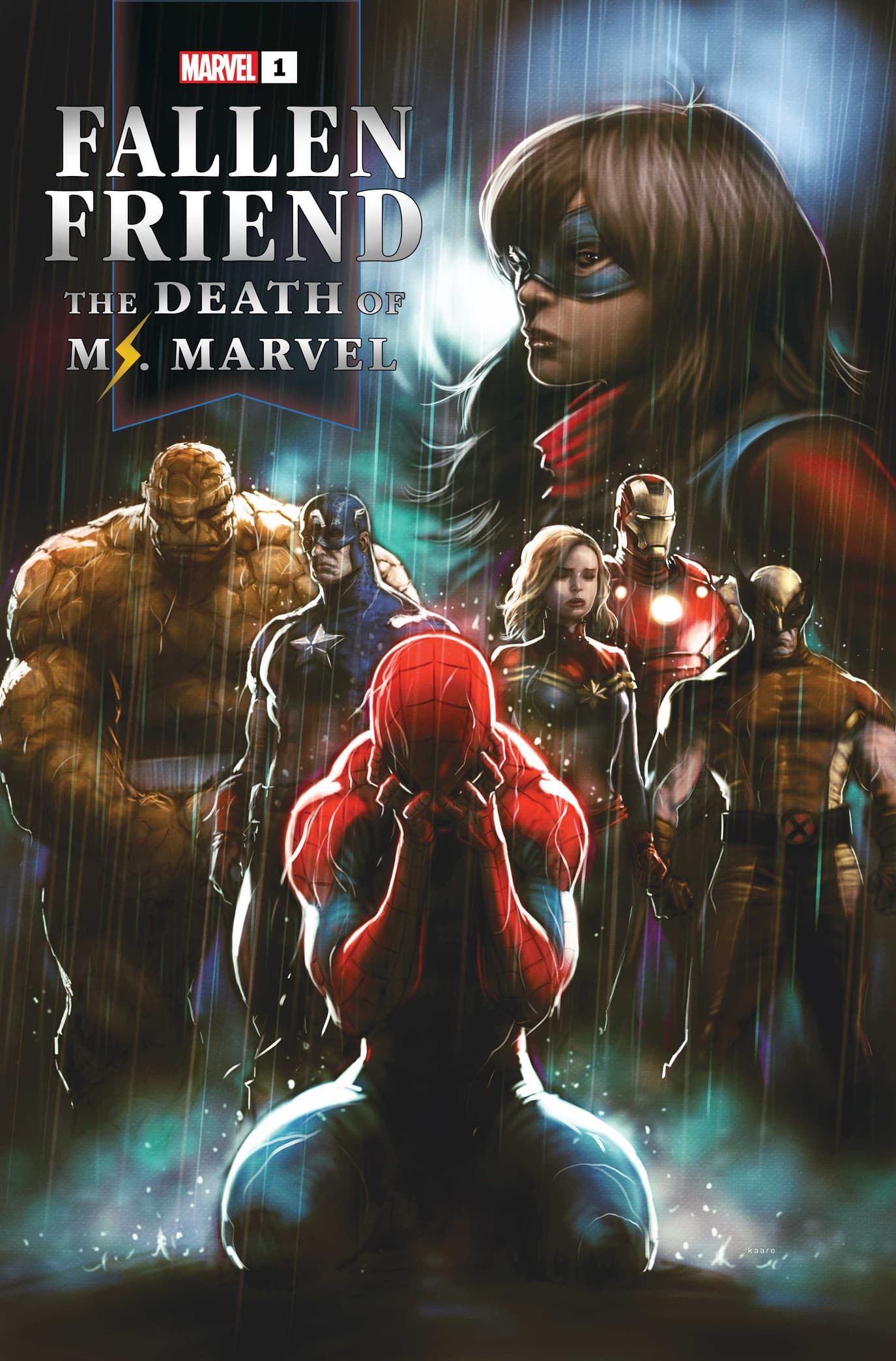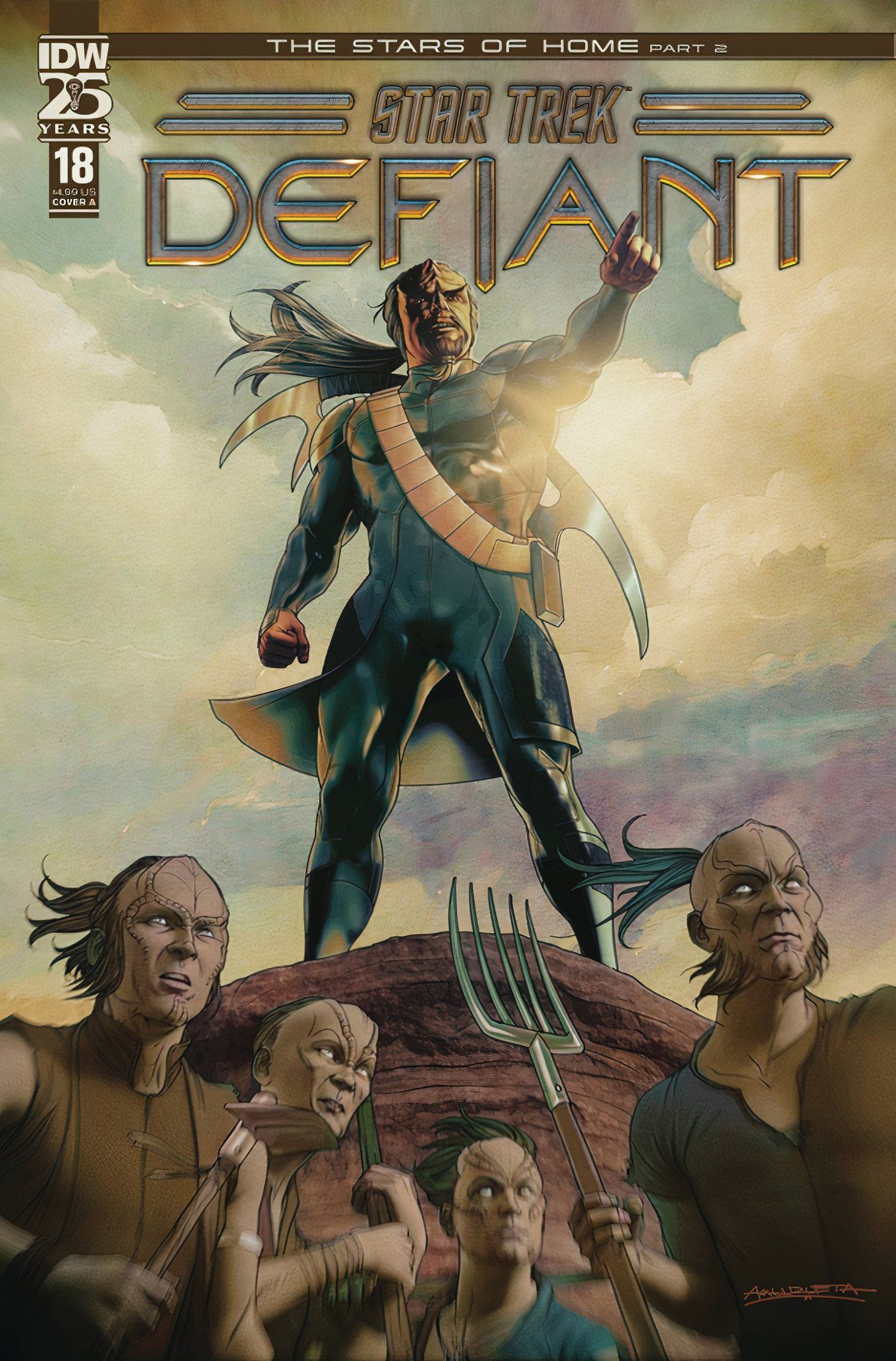Warning: SPOILERS for The Amazing Spider-Man #26Marvel Comics has officially announced the death of Ms. Marvel, sparking major controversy before the story has even been told. Kamala Khan’s upcoming death is a major shock to the Marvel Universe and Marvel fans alike, and the controversy is rooted in a number of serious issues.
After the deadly climax of The Amazing Spider-Man #26 (by Zeb Wells, John Romita Jr., Scott Hanna, Marcio Menyz, and Joe Caramagna) leaked on social media, Marvel officially announced the death of beloved character Ms. Marvel. The publisher also announced an upcoming special to be released this July titled Fallen Friend: The Death of Ms. Marvel #1 by G. Willow Wilson, Saladin Ahmed, Mark Waid, Humberto Ramos, Takeshi Miyazawa, and Andrea Di Vito, with a main cover by Kaare Andrews.

Fans met this announcement with a great deal of outrage; between accusations of “fridging” (when a female character is killed as a plot device to further a male character’s emotional arc) and worries that Ms. Marvel’s comics death may be dictated by the needs of MCU synergy, fans are noting a number of serious problems with the optics of this plot twist.
Related: Ms. Marvel & Spider-Man Save The Muslim Community By Talking, Not Punching
Ms. Marvel’s Death Means Something Different from Other Famous Marvel Deaths

Kamala Khan has been charming readers since she took over the Ms. Marvel title in 2014. Since her original solo run, Kamala has joined the Avengers, the Champions, and even the Marvel Cinematic Universe, where she debuted, in a departure from her comics origins, as a mutant in the Ms. Marvel Disney+ program. Most recently she has been appearing as a supporting character in The Amazing Spider-Man, which will soon feature her death. The Fallen Friend special is part of a long tradition at Marvel, as other notable once-dead characters like Captain America and Doctor Strange have also been celebrated in similar specials.
But what makes Ms. Marvel’s death different and majorly controversial is her role in the meta-narrative of Marvel Comics. Kamala Khan is arguably the most prominent Muslim superhero in the world, especially after her MCU debut, and she is a beacon for young women—especially for those who might be reading comics for the first time. Now, in a story that’s clearly being billed as a true spectacle, Marvel is killing off a young Muslim woman to further the emotional arc of an older white man. This is the very definition of “fridging,” a trope that in fact derives its label from a ’90s Green Lantern story. Ms. Marvel doesn’t even get to die with dignity in her own story; this story puts Spider-Man at its center, visually and narratively. The optics of this choice, despite the merits of the forthcoming issue, are irrefutably controversial—if not downright terrible.
Ms. Marvel’s Death Proves Superhero Comics Still Have a Major Problem

Notably, and as homaged in this John Romita Jr. cover for the soon-to-be infamous The Amazing Spider-Man #26, it’s been 50 years since Gwen Stacy’s death. Ms. Marvel is joining a long line of women and characters of color who have died in service to other characters’ narratives. Beyond this significant social-minded controversy, fans are also worried that Ms. Marvel’s inevitable resurrection will change the origins of her powers to better suit the MCU, potentially proving that the comics have become secondary to the MCU’s needs. In any case, Ms. Marvel’s death is already sparking essential conversations about representation in comics, even as it suggests that comics haven’t come as far as Green Lantern’s girlfriend might have hoped.
The Amazing Spider-Man #26 will be available May 31 from Marvel Comics.





